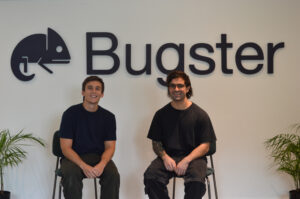
Por Yanin Alfaro
May 31, 2023
Steve Jobs, one of the most iconic entrepreneurs in the tech world, did not achieve his feat alone. He did it accompanied by a team of co-founders, Steve Wozniak and Ronald Wayne, and a coach who guided him in making decisions: Bill Campbell.
Campbell was a senior executive at GO Corp, Intuit, Clarit, and Columbia University. But he is best remembered for guiding a handful of technology company founders. His success in that sphere led him to be known simply as “Silicon Valley’s coach.”
“People love to talk about Steve Jobs, but there are a lot of guys who were with him,” says José Benguria, a Chilean coach who has worked with a number of Latin American entrepreneurs and startup founders (Benguria personally prefers the term consultant, because he says the word coach is hackneyed).
Campbell, whose advice was also vital for Google and YouTube founders, was Silicon Valley’s best-kept secret, says business coach Claudia M. Sheppard, who recommends to entrepreneurs to read Trillion Dollar Coach, the book that tells his story.
While in the U.S., it is common for startup founders to have a coach, in the Latin American market, it is still unusual. “We are always a little bit behind the U.S., but I clearly see that in three or four years in Latin America [having a coach] will be much more massive,” predicts Sheppard, who lives in San Diego, California.
A CEO of a Latin American fintech who preferred to keep his identity confidential is one of those entrepreneurs in the region who have resorted to coaches on a permanent basis. He says that once his startup gained traction and increased its client base considerably, his job went from building a good product to building a company: that’s when the need arose.
“There are CEOs or founders who don’t like that transition, and there are others who do. But we don’t have the capabilities, we don’t have enough skill, and we don’t know how to do it,” he says. He acknowledges that he also sought it out because the CEO’s job is usually lonely.
This CEO has a weekly one-hour session with a coach who is Latin American like him. He says it worked so well for him that he opened the door to more people in his company who wanted to take his advice.
“Something very interesting started to happen: every Monday when I talk to him, I talk to my startup because he knows what is happening. He has information that sometimes I don’t have,” he confesses.
The CEO also added a second coach last year, now from Silicon Valley. There is a story behind it. In 2018, someone recommended him a book called The Great CEO Within, “It’s a great book, and that’s where I met [its author] Matt Mochary, and I saw who he was a coach, and I said ‘hopefully someday I’ll meet him.’”
Four years later, he was introduced to him after his startup received investment from one of the world’s biggest VCs in the world. “I couldn’t believe it,” he says.
Mochary has positioned himself over the past decade as a coach to CEOs of more promising startups that have raised millions in venture capital. His mentees include the founders of Coinbase, Brex, Opendoor, Robinhood, and OpenAI, the company behind the popular ChatGPT.
The CEO has been mentored by Mochary for a year now, speaking for two hours once a month. “You force yourself to be more systematic, to stop a bit and look strategically,” he shares.
Mochary said last year in an interview with FastCompany: “When I’m coaching, my goal is to show people how to build massively successful companies—companies that are worth $100 billion or more. I haven’t built a company that’s worth $100 billion or more. So again, I’m a fraud.”
The joke aside, Mochary’s experience is proving very useful for the new generation of startup CEOs. At the height of the dot-com boom in the late 1990s, Mochary co-founded Totality, a server maintenance and consulting firm for online retailers. He sold the company at its peak, valued at US$500 million. It then plummeted when the bubble burst, though the company survived and eventually became Verizon Business.
“Matt is a coach to a lot of very good CEOs in the US, so he has a lot of reference data, he has a lot of historical information that saves you time,” says the Latin American CEO.
His two coaches have helped him “to know what he doesn’t know”. He elaborates: “A coach can help you a lot in that. That is a very big field, and sometimes very valuable insights can come from there that you don’t expect, that were blind spots that you didn’t know exist.”
Claudia M. Sheppard, who, before becoming a coach, worked for 20 years in companies such as Fiat and Axtel, describes other advantages: “A coach will help you maximize the opportunities presented by the market, support you in difficult moments, help you sort yourself out. He also gives you unbiased feedback and constructive criticism”.
The CEO says his coaches have taught him to think strategically. His first coach has pushed him to have conversations with players unthinkable for his startup, such as politicians, ministers or bank managers.
Another startup, a Latin American unicorn that preferred not to be named, told Contxto through a communications representative that they sought a coach when their expansion into other markets was greater and, precisely, they needed to communicate their new openings. She also said they leveraged their coach to connect with others in the ecosystem for key activities in their industry.
Why and how to find a coach for a startup
Having given consulting to around 300 companies, José Benguria knows that they seek his advice when they are evolving.
“Faced with any need, my greatest contribution to a person or organization that is undertaking is to be a sufficiently independent counterpart, who has seen many things, who has different visions,” says this coach who has worked as a consultant at Endeavor and at Imagine Lab, an organization aligned with Microsoft in Chile.
As a coach, he has helped entrepreneurs “find their unique value, listen, try to contrast, either alternatives or visions or even just refine a certain idea or position.”
For her part, Sheppard believes that startup founders turn to a coach because they want personal growth, and that impacts their businesses. He believes that, although no one knows their business better than the founders themselves, a coach has a more open view and sees opportunities where the founder might be blinded. “By having a coach, they can get where they want to go faster if they ask for help, they save years of learning, and that’s invaluable,” he reflects.
Matt Schulman, CEO of a Silicon Valley startup that advises companies on employee compensation, Pave, interviewed more than 300 CEOs of U.S. startups, primarily that have been invested in by a16z and Y Combinator. There, he gained some insights into the work of coaches. In his survey, he identified that coaches of seed stage and Series A CEOs earn a rate of around US$950 per hour, but coaches of startups in Series B, C, and D earn US$1,500 per hour. The survey also found that CEOs typically meet with their coach twice a month in 60-minute sessions.
The selection of a coach must be careful, Benguria cautions. “It has to be a person with vast experience, who has already walked a path, who has diverse knowledge, has to be extremely responsive and certainly prudent.”
Benguria, who also works in academia, highlights the importance of coaches realizing their role is to serve others rather than being the main focus. Benguria also asserts that CEOs need to understand that asking for outside opinions or assistance does not equate to losing their independence – a common misconception.
Main image: Adobe Stock
You may also be interested in: Five Questions With: Senzai

Por Stiven Cartagena
September 15, 2025
December 4, 2024
November 20, 2024